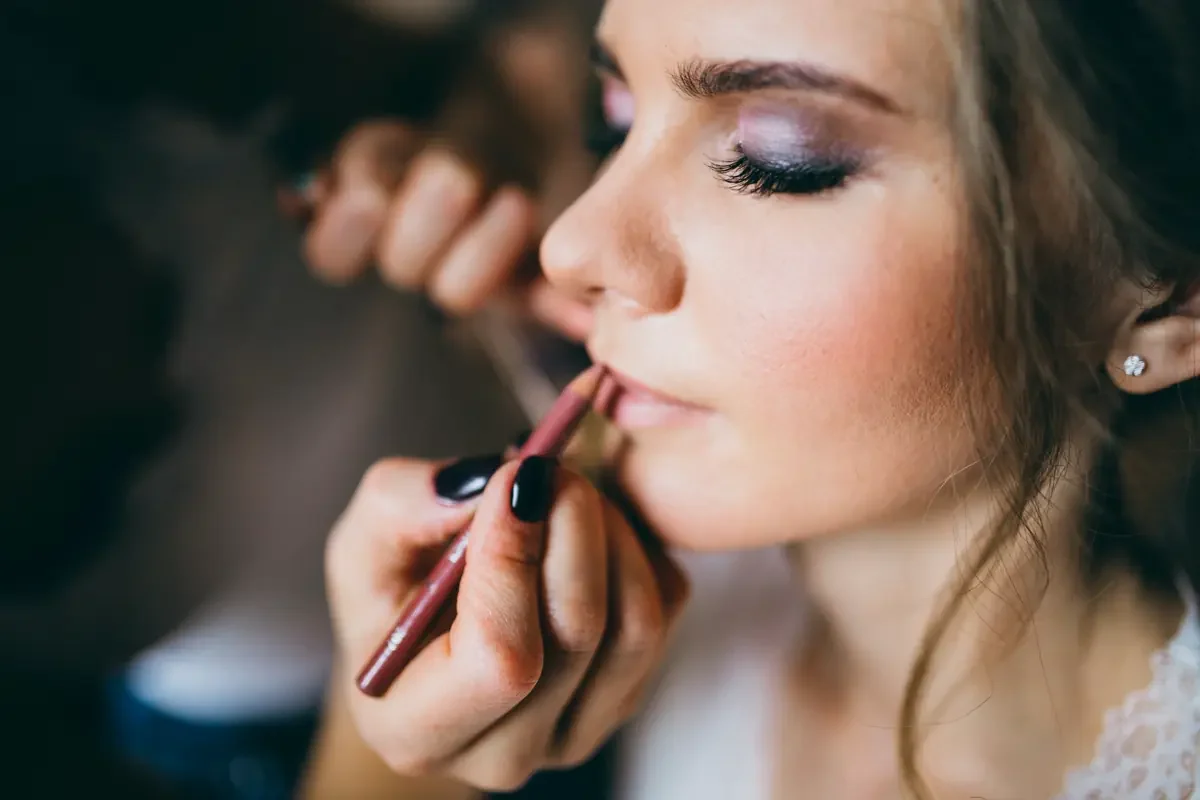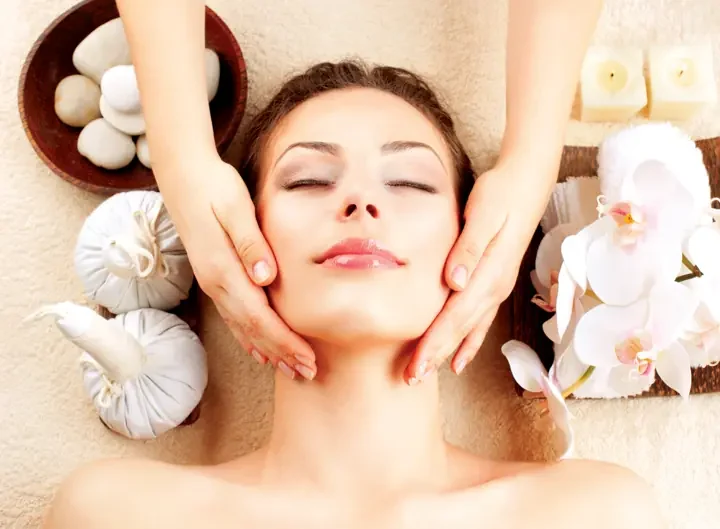Makeup speaks volumes without saying a word. Every product we apply, every color we choose, carries a message about how we want the world to see us. But it’s not just about covering up; makeup is a powerful tool for deciding what parts of ourselves we want to highlight and what we’d rather keep hidden.
From the daily routine of concealing blemishes to the bold moves of choosing a bold lip color, makeup is a form of personal expression. It’s a quiet, yet impactful way we navigate social expectations, self-image, and even our mood.
And while it’s easy to think of makeup as just a beauty trend, it goes deeper, revealing how personal and cultural influences shape our choices.
How Does Everyday Makeup Reflect Social and Cultural Expectations?
From subtle lip tints to concealer under tired eyes, the daily act of applying makeup is deeply embedded in social conditioning. Though often described as “personal choice,” the desire to wear makeup, especially among women, is rarely free from cultural influence.
Makeup expectations vary by age, gender, region, and community, but they all carry one core message: how you present your face tells the world how you value yourself and how much you respect others’ time and attention.
Ways everyday makeup reflects social and cultural norms:
- “Put-together” equals professionalism
In many cultures, particularly Western ones, a polished face is equated with being competent, organized, and employable. To show up barefaced is often to risk seeming lazy, tired, or unprepared. - Minimalism vs. Glamour as class signals
Subtle, “no-makeup” makeup is often associated with wealth and privilege, it suggests leisure, time, and access to high-end products. In contrast, bold makeup is sometimes unfairly stigmatized as “trying too hard” or lacking refinement. - Gendered expectations
While makeup is marketed as empowering, it’s still mostly a social requirement for women in many spaces. Men who wear makeup face a very different (and often harsher) kind of scrutiny. - Age-related pressure
Younger people may be praised for embracing a “fresh face,” while older adults, especially women, are often judged for showing signs of aging without concealing them. - Cultural and racial beauty standards
Across the globe, makeup is shaped by prevailing beauty ideals like lighter skin, smaller noses, fuller lips, bigger eyes, many of which are rooted in Eurocentric aesthetics. Everyday makeup rituals often mirror these standards, subtly reinforcing them.
These pressures are rarely overt, but they’re always present. The decision to apply mascara or dab on concealer isn’t just about appearance; it’s a quiet compliance with society’s spoken and unspoken rules.
What Role Does Subtle Makeup Play in Professional Environments?
In professional settings, appearance is currency. And for many, everyday makeup is part of the unofficial dress code. While no HR handbook will explicitly demand foundation or eyeliner, the implicit expectation is clear: show up “presentable.” And for most people, especially women, that means a face that looks alert, even-toned, and polished.
Subtle makeup becomes a tool for blending in, signaling ambition, and even managing perceptions.
The functions of everyday makeup at work:
- Neutralizing fatigue
Concealer and blush mask signs of stress or exhaustion, maintaining the illusion of balance and composure, even in high-pressure environments. - Creating visual consistency
Like a uniform, subtle makeup helps project a consistent image, one that clients, coworkers, and managers come to expect. - Shielding emotion
A polished face can act as a mask—blurring worry, disappointment, or vulnerability during challenging conversations or negotiations. - Enhancing credibility
Numerous studies show that people perceive those wearing subtle makeup as more competent, trustworthy, and likable. - Mitigating gender bias
Unfortunately, women who don’t wear makeup in the workplace may be judged as “not trying” or even “unkempt,” while those who wear too much can be dismissed as vain or unprofessional. It’s a tightrope act.
Men, on the other hand, often benefit from grooming standards that do not include makeup, highlighting just how gendered these unspoken rules can be. For those who defy these expectations such as nonbinary professionals, men who wear makeup, or women who go bare-faced, navigating workplace perception becomes even more layered.
How Does Makeup Influence Perceptions of Identity and Authenticity?
We often describe makeup as a “form of self-expression,” but society isn’t always comfortable with that expression, unless it fits a narrow range of acceptability. As a result, makeup walks a strange line between being personal and performative.
What we wear on our faces can both reflect who we are and disguise us from judgment. And depending on the setting, makeup might be read as confidence, creativity, or insecurity, sometimes all at once.
Makeup and its impact on perceived identity:
- Minimal makeup = natural beauty or lack of effort?
One person may see your bare face as brave and authentic; another may view it as careless or indifferent. - Bold makeup = self-expression or attention-seeking?
A colorful eye or bold lip can be read as powerful and artistic or excessive and inappropriate, depending on the viewer. - Ethnic identity and beauty norms
For many people of color, matching foundation shades or natural hairstyles paired with makeup becomes an act of cultural reclamation. Yet mainstream standards still penalize these expressions under the guise of “professionalism.” - Gender expression through cosmetics
For trans and nonbinary individuals, makeup is often a key part of navigating identity either for affirmation, passing, or resistance. Yet society often polices who is “allowed” to wear makeup and what kind. - Makeup as a mask vs. a mirror
Some wear makeup to feel more like themselves. Others wear it to hide. Often, it’s both and both are valid.
Makeup doesn’t lie, but it doesn’t tell the whole truth, either. What it reveals about our identity often depends on the viewer’s lens more than the wearer’s intent.
Why are Certain Beauty Choices Seen as More Acceptable Than Others?
If makeup is just “personal preference,” then why is it so heavily policed?
There’s a thin line between what society deems beautiful and what it considers excessive. When someone steps over that line, whether it’s with dramatic eyeliner, bold lipstick, or intense contouring, they can face criticism. But the real problem isn’t about how they look. It’s about challenging the norms of power, control, and conformity that society expects everyone to follow.
The politics of “acceptable” makeup:
- Subtlety is rewarded
The closer your makeup mimics your natural features, the more likely it is to be praised as elegant, professional, or tasteful. - Loud looks are policed
Dramatic styles are often labeled unprofessional, “too much,” or even intimidating, especially for women and people of color. - Trends are excused on certain faces
A bold brow on a model is edgy. For someone in an office setting, it might be “distracting.” Beauty trends are often more accepted when worn by those who fit traditional beauty standards. - Makeup-free faces are romanticized
The “no-makeup” trend celebrates a very specific kind of face: clear skin, full brows, rosy lips. Anyone else who skips makeup may be told they “look tired” or unpolished. - Choice is framed as obligation
Women are told makeup is a choice—but also expected to wear it to “look presentable.” Meanwhile, men who wear makeup are told it’s unnecessary or strange.
These double standards reveal that makeup isn’t just cosmetic—it’s cultural. And until beauty choices are truly treated as choices for everyone, they’ll remain tangled in quiet politics.
Every Face is a Statement
We may not talk about it openly, but every face in the mirror carries a silent message, one shaped by social codes, cultural expectations, personal identity, and invisible rules. The makeup we wear each day (or don’t) is never just about aesthetics. It’s a subtle language. A negotiation. A boundary and an invitation.
It tells the world who we are or who we think we need to be to succeed, to belong, to be seen.
So the next time you reach for your concealer or swipe on a bit of gloss, remember: it’s not shallow. It’s not silly. It’s a ritual rooted in power, perception, and pride.
Explore Makeup on Your Terms, Not Society’s
At Pure Escape Resort, we believe makeup should be a tool for expression, not a test to pass. Whether you’re redefining beauty on your terms or just looking to glow with confidence, our artists are here to support your vision. Book your appointment today and let your face say exactly what you want it to.

